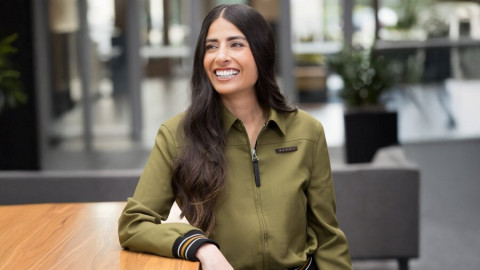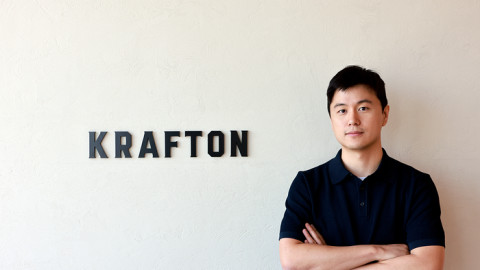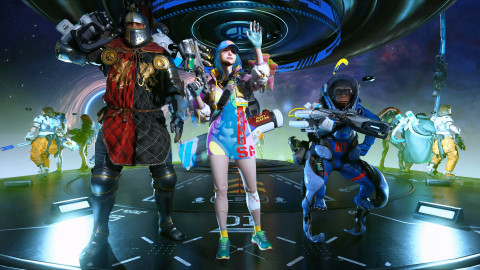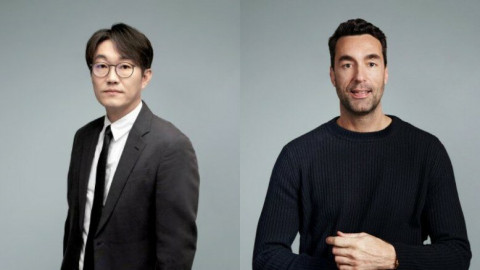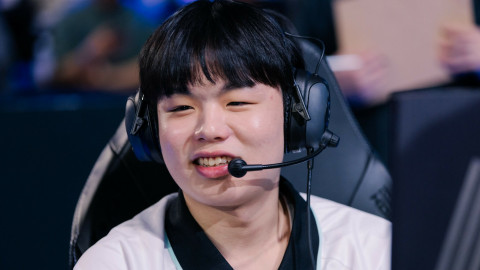
Jacob Wolf is a veteran in esports journalism, growing from grassroots, and becoming a full-time journalist with ESPN Esports. Since being employed with ESPN, Jacob has done various types of content for ESPN from written, audio podcasts, and now, video content. However, Jacob is more known nowadays for breaking esports news from offseason moves and roster trades.
During NYXL's homestand in the opening week of the Overwatch League season, Inven Global's Chris Cuevo had an extensive chat with Jacob Wolf. Part 1 of this interview is about his start in esports, his start in being an esports journalist, and his rise.
How did you get introduced to esports?
I started sort of paying attention to esports because I was playing Call of Duty online competitively during Modern Warfare 2 and Black Ops. It was not the birth of YouTube, but it was certainly when YouTube hit its ascendency and Call of Duty content was at its peak.
A lot of people that were doing those were eventually esports competitors in professional Call of Duty. I wanted to be one of those people, I was playing against some of those people in GameBattles on MLG. I kept up with some of that, but really, everything changed for me when a friend of mine introduced me to League of Legends.
It got me into the esports scene during Season 2. I watched Season 2 world championships and that was such a huge deal. From there, I kept up with it. Then in 2014, I started writing about it. Two years later now, here I am.
Were there any players you looked up to?
It's a good question. Early players, more of the creators, Nadeshot obviously is one of those people that was around back then and still is around now as an owner. People like H3CZ as well. It's funny to be like 11 or 12 years old watching these people and now meeting them in person and having thorough conversations. It was a really different change of pace. I definitely looked up to those people.
I really enjoyed a lot of the Machinima content back then too in terms of Mr Sark, SeaNanners, and Hutch. Not only on Machinima Respawn but obviously everything they've been doing around Call of Duty and other games. Rest in peace, Machinima.
Certainly, those guys are people I've paid attention a lot back then. Now, I've got the opportunity to meet some of them.
As far as writing is concerned, were there any esports journalists that you looked up to?
In 2014, I was reading a ton of Richard Lewis, Thorin, Drexxin, Kelsey Moser, Emily Rand - who is now my colleague. Also, Paravine - actually I hope to see him today, Andy Del Rey - who ran Paravine. I was reading a lot on their site and it inspired me to start writing.
I pitched to a bunch of different websites and called into Richard's talk show, "Trash Talk", who recommended I hit up Drexxin and apply to be a writer at Esports Heaven, which is where I got my start. Thank you, Richard and Drexxin.
That was really the start for me was reading a lot of those people's work, and inspiring to be like some of them.
So what led you to your current position at ESPN?
I started at Esports Heaven, freelanced a little bit at Gfinity, and freelanced at The Score. When I freelanced at The Score, they've been around for about three months at that point, and they were really wanting to sort of take the Daily Dot's/Dot Esports' market share and space, and one-up Dot Esports.
There was a lot of like competitive ire between the two of them. Me freelancing for The Score for what ultimately was one published piece led to Dot Esports reaching out to me, and wanting to recruit me as a contract writer. I talked to Kevin Morris, who is still in Dot Esports now, he recruited me into Dot and was contracted there for about 8 months before I got promoted to full-time. I moved from Atlanta to Austin to work there. Within a few months of that, ESPN reached out.
I've been introduced here in New York to Mina Kimes, who wrote the prolific Faker piece in ESPN The Magazine and the esports edition that had Marshawn Lynch on the cover. Then, I met a bunch of producers for ESPN. I had various different conversations while at Dot with ESPN people, but they ultimately went in a different direction at first.
Then, in the Spring of 2016, they came back to me and I went to Connecticut, and did the full car wash of nine different interviews in a single day. A couple of weeks later, I was chosen and going to be hired if I wanted the job. Obviously, yeah, I did. Almost four years later, it's been a crazy, wild ride.
What convinced the ESPN heads to go into more esports content/journalism?
I wasn't part of the founding group so I don't know how much I can speak to why they did it. I will say that the department we came into was with a guy named Dan Kaufman, Harvard graduate, worked at Sports Illustrated, and worked at ESPN for a long time. Dan now runs The Athletic, which is obviously a large sports venture. He runs the editorial side of The Athletic. Basically, everything he has to do at ESPN was to start verticals and start sections in new, non-traditional sports-type things like fantasy sports, mixed-martial arts, and esports.
They made some of the hires and eventually me as well on that list. I can't speak to the sum of the motivations. Also, a lot of the people that made those decisions at ESPN no longer work at ESPN. I have not got to become as close to them. But yeah, Dan's great and his group was super interested in getting involved. They are why we're here now.
What things have you learned since joining ESPN that you didn't learn before?
So many things. For starters, how to be a better writer. Having access to the amount of editors I do, not just in esports but in investigative work and news writing with our news desk. I have had so many people that have helped me better with my writing. I still don't think it's great but I acknowledge I'm very carried by the information that I provide, which is less of the writing and more of the reporting. Having access to those type of people is pretty amazing. Being able to lean on them and learn on them is a big deal.
In the past eight to nine months I've been on camera a lot, which has been something I like really wanted to do. I was anxious and eager to do when I first started at ESPN. But now, having the infrastructure to do it, in terms of having four video producers now that like actually have the time to dedicate to this, and do esports all the time, which is a good change for us.
I've learned a lot like I came into the company as the youngest person that were hired at ESPN. I was 19-years-old as a part-time employee, now a full-time employee. Now, I'm almost 23 so four years certainly taught me a lot. It's been nice to lean on people with a lot of various different experience, particularly those outside of esports to learn more tradition about the craft.
I want to know now, who is your biggest mentor?
That's a good question. I mean, Kevin Morris, what he did for me at my year at Dot was incredibly - I want to thank him a ton for that. I always try to. The guy took me every single week to pull me into meetings, go over everything I've written, how I could improve, and critiqued me. That's something you don't really get out of a lot of editors. He was huge in that regard.
I've had some good people I've kept in touch with that are more on the traditional sports side of ESPN who have been giving me mentors as well. Like Mina Kimes, Seth Wickersham, and Paula Lavigne, who all work in investigation so on from storytelling at ESPN. Those people have been really good mentors.
It's been difficult because being in my position at how young I am and it being untraditional to be this successful at this age, it's hard to find people to identify with that have been in the same boat. I have struggled over the years to find mentors from a life perspective, less from a work perspective.
Sometimes, that can feel a little lonely and disjointed as well. I try to blaze my own path in some ways and lean on others where it makes sense.
Do you think it puts a lot of pressure on you since you're fairly young compared to everyone else in ESPN?
Yeah, I've felt that way for a long time. I feel a lot less that way now. I think for a while there, I was a kid that had something to prove. I would like to think at least that at the past four years I've proven what I can do in terms of being a good reporter in really difficult moments.
Also, a team player and help contribute in ways more than just writing and being on video. I've been a lot more involved in the past few months in production and various different other things that I'm really passionate about but is not what I'm employed to do.
We're a team of 13 people right now at ESPN that work on esports full-time for digital media, for video, and written. So, you got to pick up the slack, right? Everybody has to do their part and a little bit extra to make it work. We're kind of like a startup within a major media company. It's super important that everybody pulls their weight.
The second part of the interview with Jacob Wolf is going to be coming soon. In the next installation, we talk about his time as an esports journalist for ESPN, what he thinks is missing in esports journalism today, and advice for up and coming journalists. Stay tuned.
-

Writer @InvenGlobal | Freelanced at @overwatchscore @vpesports @GinxTV @Upcomer | Former CLICKON Media and Echo Fox.
Sort by:
Comments :1
-
0

level 1 hocife
how can i contact with u ?

